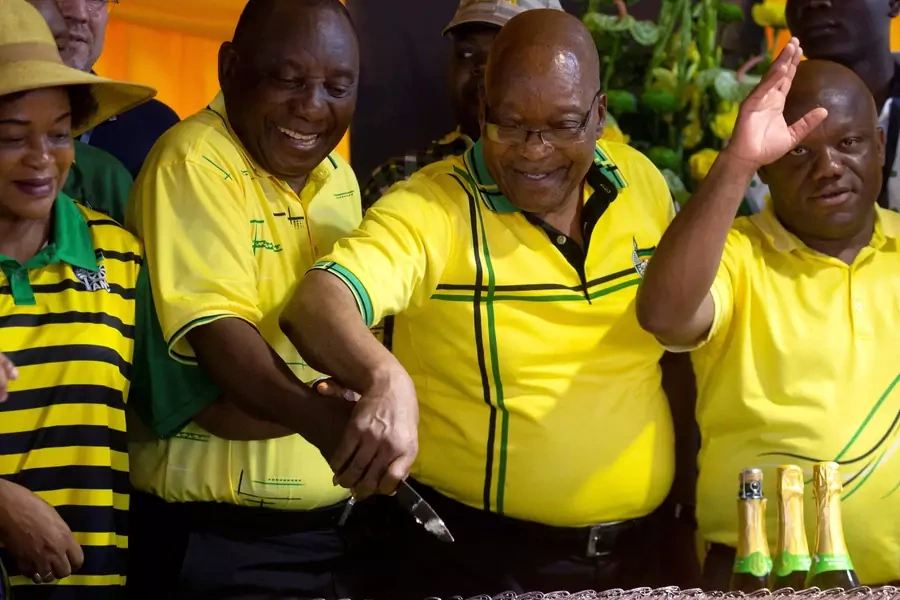South Africa: Cyril Ramaphosa, Jacob Zuma, and Ace Magashule From 30,000 Feet

South Africa is a democracy conducted according to the rule of law with a genuinely independent judiciary. While post-apartheid South Africa has made progress in addressing extreme poverty among the black majority, the white minority (just under 8 percent of the population) dominates the economy and enjoys a first-world standard of living, while that of the black majority has been compared to Cameroon.
The African National Congress (ANC), the party which has dominated government since the end of apartheid in 1994, is a mélange of democratic and "liberation" assumptions and procedures. Once multiracial, the ANC is now largely a Black political party. During the 2009–2018 presidency of Jacob Zuma, it became deeply ensnarled in corruption and steadily lost the support of the electorate. Zuma is widely regarded as personally corrupt. Cyril Ramaphosa, a close associate of Nelson Mandela, campaigned within the party to unseat Zuma and clean up the corruption, not least to stimulate foreign and domestic investment in the economy. Ramaphosa only narrowly won, and Zuma retains considerable influence. Nevertheless, Ramaphosa's victory was the occasion for the longstanding criminal proceedings to go forward against Zuma for corruption, specifically involving bribes paid by a French company to secure defense contracts more than a decade ago. There have since been many courtroom dramas: the latest is that Zuma's trial has been postponed until July 19. In effect, Zuma and his lawyers have sought to make the case a political rather than judicial one. If convicted, Zuma would likely go to jail.
More on:
As part of his ANC cleanup, Ramaphosa has also suspended Ace Magashule—a close Zuma ally also credibly accused of corruption—from his position as the ANC secretary-general. Zuma, Magashule, and others are seeking to recapture somehow the ANC and ultimately force out Ramaphosa. For the time being, Ramaphosa has the upper hand.
The backstory is that the ANC is deeply divided. One wing, associated with Zuma, sees Black poverty as best addressed through vast expansion of the state in the economy, with it becoming an employer of last resort, and massive programs of transfer payments for the redistribution of wealth. It is often impatient with constitutional and legal provisions that protect private property and limit what the state can do. Similarly, it sometimes resents the independence of the judiciary. This wing is "populist," and has been associated with the Zulu ethnic group, which makes up about a quarter of the population. It is often conservative on social issues, disliking, for example, gay marriage. On the other hand, it is home to many female politicians.
The other wing, now associated with Ramaphosa, seeks to address poverty by diversifying the economy, largely through private investment, to spur growth. That wing sees corruption as a significant bar to the investment the economy needs if it is to grow fast enough to reduce poverty. On social issues, it is broadly progressive and seeks to downplay ethnic identities.
As with democratic politics anywhere, numerous other factors shape the ANC, including personalities and personal ambition. For example, in the 2018 contest to lead the party, Ramaphosa's chief opponent was Nkosazana Dlamini-Zuma, an ex-wife of Jacob Zuma but a formidable politician in her own right.
The business community generally favors the Ramaphosa wing, with its greater openness to international trade and investment. But the Zuma wing remains in many ways the voice of the townships and rural dwellers left behind in post-apartheid South Africa.
More on:
 Online Store
Online Store
